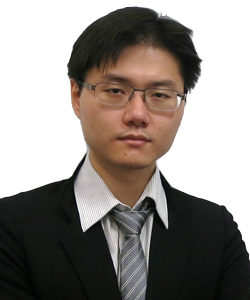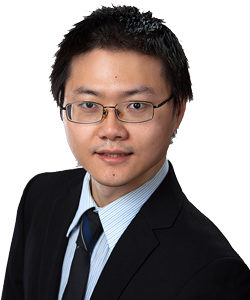As brand identification moves beyond traditional realms and into ever more interesting spheres of influence, staying abreast of trends and changes to law in the Asian region is imperative
Navigation:
India | Philippines | Sri Lanka | Taiwan
The following are some key reports on issues crucial to trademark practice in Taiwan. Taiwan Intellectual Property Office (TIPO) in conjunction with Intellectual Property Office of the Philippines (IPOPHL) holds workshop. From 14-16 August 2018, TIPO held a TIPO-IPOPHL Trademark Examination Practices Workshop. Three senior examiners from the IPOPHL took part in the event.
During the workshop, the Philippine examiners introduced the mechanism used to accelerate the examination process in their country, while Taiwanese examiners shared their online examination process and relevant practices. The two sides also exchanged views on areas such as well-known trademarks, 3D trademarks and regular trademarks. In addition, as part of the programme of the workshop, the Philippine delegation paid a visit to the Branding Taiwan Project Office of the Industrial Development Bureau of the Ministry of Economic Affairs (MOEA), where they learned about how the Taiwan government supports local businesses when they are building global brands.

Partner
Deep & Far in Taipei
Tel: +886 2 2585 6688 (ext. 8139)
Email: yltsai@deepnfar.com.tw
Publication of Examination Guidelines on Procedural Examination of Applications for Trademark Registration. TIPO published the Examination Guidelines on Procedural Examination of Applications for Trademark Registration on 19 October 2018. The guidelines comprise a total of 15 chapters: Preamble, submitting and withdrawing of applications; application fees; trademark application form and filing date; right of priority and right of exhibition priority; applicants; agents; trademark reproductions; designated goods or services; notices stating grounds for intended refusal and disposition of refusal or acceptance of trademark applications; issuing a letter of consent to coexistence; division and restriction of designated goods or services; changes and corrections prior to registration; serving; calculation of period; and request for restoration to the status quo ante. The guidelines are aimed at helping people understand procedural requirements for the application for trademark registration, providing more comprehensive protection of applicants’ rights and interests as well as increasing efficiency in examining applications for trademark registration. TIPO encourages those interested to make use of the guidelines.

Partner
Deep & Far in Taipei
Tel: +886 2 2585 6688 (ext. 8187)
Email: lawtsai@deepnfar.com.tw
The 2018 APEC Workshop on the Best Licensing Practices of Collective Management Organizations (CMOs) to Micro, Small and Medium Enterprises (MSMEs). As CMOs yield licensing to MSMEs (including start-ups, karaokes, traditional shops and franchise stores), in order to establish fast and convenient licensing models in response to technological advancements in the digital era, and to assist the industry in improving service efficiency and creating new values, TIPO organized the 2018 APEC Workshop on the Best Licensing Practices of Collective Management Organizations (CMOs) to MSMEs on 23-24 October. Experts from a number of economies including Australia, Chile, China, Indonesia, Japan, Korea, Malaysia, Mexico, Thailand, Peru, Russia and Vietnam were invited to share and discuss CMO licensing and the latest trends. The two-day workshop was well received by all circles. A total of 350 people joined the occasion, including 27 representatives from the 13 APEC economies such as Russia, China, Chile, Mexico, Malaysia and Vietnam. The attendants all actively contributed and exchanged ideas, and this allowed the participating CMOs, MSMEs and government agencies to gain further understanding of CMO licensing and policy-making in other economies.
Modified classification of goods and services comes into force on 1 January 2019. The Nice Classification, 11th Edition, Version 2019, as modified by the World Intellectual Property Organization (WIPO) came into force on 1 January 2019. In response, TIPO released a modified classification of goods and services based on the Nice classification, in hopes of providing references for trademark applicants. On the modified classification of goods and services, please see the “Combined List of Changes Made to the Class Headings and Explanatory Notes of the Nice Classification, 11th Edition, Version 2019” and the “Comparisons between Version 2018 and Version 2019 of the Nice Classification” on TIPO’s website, in the Goods and Services Information column. For more information, please visit TIPO’s webpage at: https://www.tipo.gov.tw.
TIPO completes analytical reports on IPR regimes in Southeast Asian and South Asian countries (6 March 2019). To assist businesses in learning more about the IPR regimes and practices in the major countries listed in the New Southbound Policy, TIPO recently collected information on the IPR regimes, practices, registration and related procedures in question in six countries – the Philippines, Malaysia, Indonesia, India, Vietnam and Thailand.
TIPO has also written two analytical reports, “Trademark Systems and Developments in Southeast Asian Countries”, and “Patent Systems and Developments in Southeast Asian Countries”, for the reference of companies when setting their southbound IP strategies. The above-mentioned information and reports have been released under “IPR Protection in Southeast Asian and South Asian Countries” on the TIPO website. All members of the public are invited to browse the documents. For more information, please visit (Chinese language): https://www.tipo.gov.tw.
TIPO releases patent and trademark statistics and Top 100 patent applicants in 2018 (6 March 2019). In 2018, TIPO received 47,429 applications for invention patents, an annual increase of 3% and the second year of consecutive growth; 8,082 applications were for design patents, about the same as last year, while 17,910 were for utility models, marking a drop of 8%.
By citizenship of applicants, Taiwanese nationals filed 39,278 applications, marking a 4% year-on-year decrease; while foreigners filed 34,143, a 4% increase compared to the previous year. As to Taiwanese nationals, there were 18,365 applications for invention patents, marking a 1% increase. Also, there were 4,252 applications and 16,661 applications for design patents and utility patents, respectively, representing a 1% and a 9% decrease. Japan topped the list with 14,169 applications, followed by the US (7,345) and mainland China (3,506).
Among the top 100 corporate patent applicants, Taiwan Semiconductor Manufacturing has topped the list for three years. The number of its applications has been growing since 2015, reaching a record-high in 2018. AU Optronics Corp secured second place with 586 applications. As to foreign companies, Qualcomm led with 1,011 applications. This was not only a 67% year-on-year increase for the company but also marked the most significant growth among the top 10 corporate patent applicants. Alibaba Group Holding placed second with 599 applications.
Looking at the structure of the top 100 patent applicants, corporations provided the main momentum in R&D. The numbers of applications for invention patents, utility patents and design patents have all increased, by 2%, 7%, and 53%, annually and respectively. Academic applications for invention and design patents have also grown, by 5% and 26%, annually and respectively, although utility patent applications decreased by 2%. For research institutions, the numbers of applications for invention patents decreased by 5%.
In terms of trademarks, TIPO received 84,816 applications, marking a 1% year-on-year increase – the highest in 18 years. Taiwanese nationals filed 59,840 applications, just 2% less than the previous year. Foreign nationals filed 24,976 applications, 11% more than the previous year. The three main countries of application are: mainland China (5,770 applications, 19% more than the previous year) which remains at the top, Japan (4,728 applications, 21% more than the previous year), and the US (4,187 applications, 14% more than the previous year).
In addition, TIPO has achieved significant results in accelerated examinations. On average, it took nine months for an applicant to receive an Office Action and 14 months to receive examination results of an invention patent case in 2018. As to trademarks, the time periods were respectively five months and seven months. Both the numbers of invention patent and trademark applications pendency were lowered to roughly 46,000. This shows that TIPO has effectively assisted applicants and companies in their patent and trademark portfolio layouts.
Deep & Far Attorneys-at-Law
13/F, 27 Sec. 3, Chung San N Rd,
Taipei 104, Taiwan, ROC
Email: email@deepnfar.com.tw
Tel: +886 2 2585 6688
www.deepnfar.com.tw























